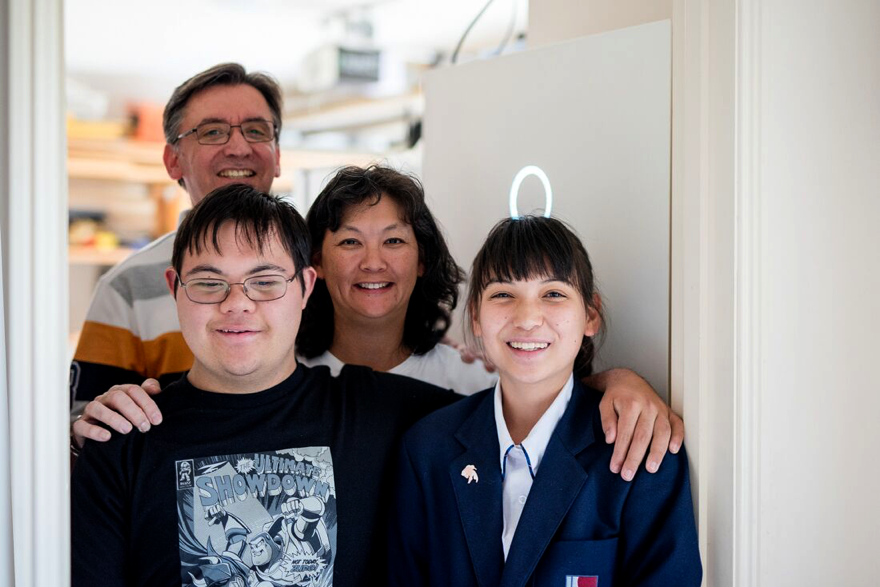A three-person household with a 5kW rooftop solar array and 6kWh battery system can see their annual power bill slashed from $2,336 to only $467 – in analysis published by the Smart Energy Council (SEC) today. The SEC produced the modelling to assess the impact of the Federal Labor Opposition’s proposed policy to provide subsidies for households looking to install battery storage systems.
The Labor plan, released in November 2018 as a part of a much broader suite of renewable energy policy measures, proposes providing 100,000 rebates of $2000 for residential battery systems, plus low-cost financing through the Clean Energy Financing Corporation.
The Council analysis models a three-person suburban family with an average power consumption of 6,570 kWh. After the installation of a 5kW rooftop system and 6kWh battery, the households power bills falls from $584 a quarter, to only $117.
“The Smart Energy Council’s analysis shows that Federal Labor’s commitment to reduce the cost of batteries by $2,000 means 100,000 families will be able to slash their power bills by up to 80 per cent. That is fantastic news,” said SEC CEO John Grimes in a statement.
While the Smart Energy Council acknowledges that while it will differ from household to household, depending on energy usage and suitability to rooftop solar, it says for larger households installing a bigger battery will come at a higher cost, but deliver commensurate power bill savings.
Looking across the states, the SEC finds that Labor’s residential battery storage policy will push system payback periods to below 10 years in all states – making it shorter than the manufacturer warranty period.
| State/Territory | Current payback period | Payback period with $2000 support |
| South Australia | 5.3 years | 3.5 years |
| New South Wales | 6 years | 5 years |
| Western Australia | 6 years | 5 years |
| Queensland | 6.5 years | 5 years |
| Victoria | 7 years | 5.5 years |
| ACT | 9 years | 7.5 years |
| Tasmania | 10 years | 8 years |
“The Smart Energy Council strongly welcomes a national target of one million battery storage systems by 2025. With battery prices falling and electric vehicle battery manufacturing powering ahead, one million batteries by 2025 is ambitious but achievable,” added Grimes. “The Smart Energy Council is absolutely committed to ensuring the [Labor Party’s] Household Battery Program, if implemented, delivers quality products, quality installations, public safety and accredited training for installers.”
Labor seized on the SEC analysis, noting that the Coalition does not have a plan to “support the uptake of household batteries,” in a statement released by Shadow Minister for Climate Change Mark Butler.
“As the Smart Energy Council analysis shows, supporting the installation of more household battery systems is the next big step in helping families keep their energy bills lower,” the Labor statement reads. “This is good for consumers – giving them more control over their power bills, as well as lowering power prices and improving reliability for all Australians by reducing demand on the electricity grid in peak times.”
Alongside the savings on power bills, the Smart Energy Council notes the role that distributed battery storage can play in protecting households from blackouts and in helping to stabilise the grid, through allowing grid operators to access the power stored in the batteries.
This content is protected by copyright and may not be reused. If you want to cooperate with us and would like to reuse some of our content, please contact: editors@pv-magazine.com.









By submitting this form you agree to pv magazine using your data for the purposes of publishing your comment.
Your personal data will only be disclosed or otherwise transmitted to third parties for the purposes of spam filtering or if this is necessary for technical maintenance of the website. Any other transfer to third parties will not take place unless this is justified on the basis of applicable data protection regulations or if pv magazine is legally obliged to do so.
You may revoke this consent at any time with effect for the future, in which case your personal data will be deleted immediately. Otherwise, your data will be deleted if pv magazine has processed your request or the purpose of data storage is fulfilled.
Further information on data privacy can be found in our Data Protection Policy.